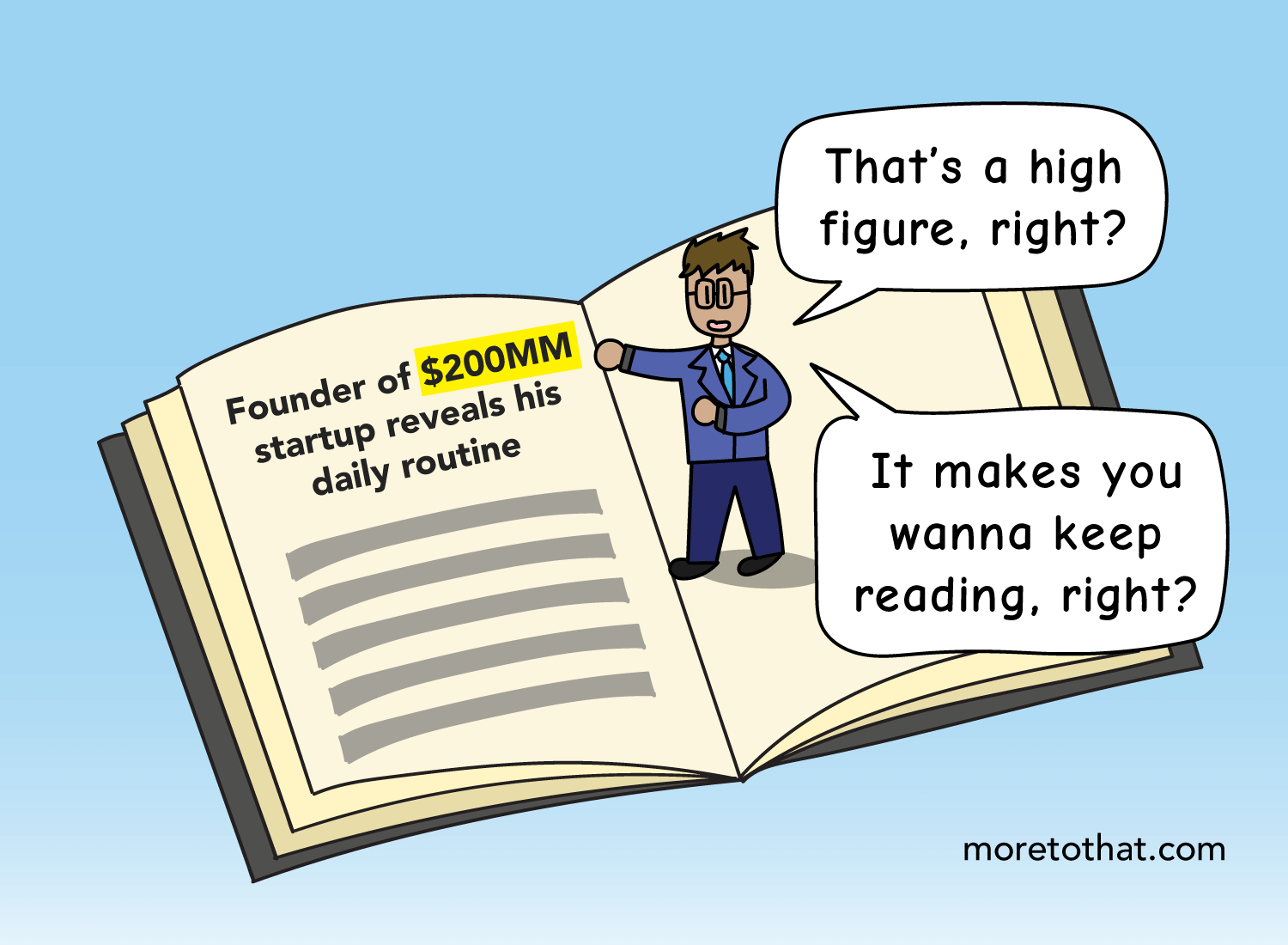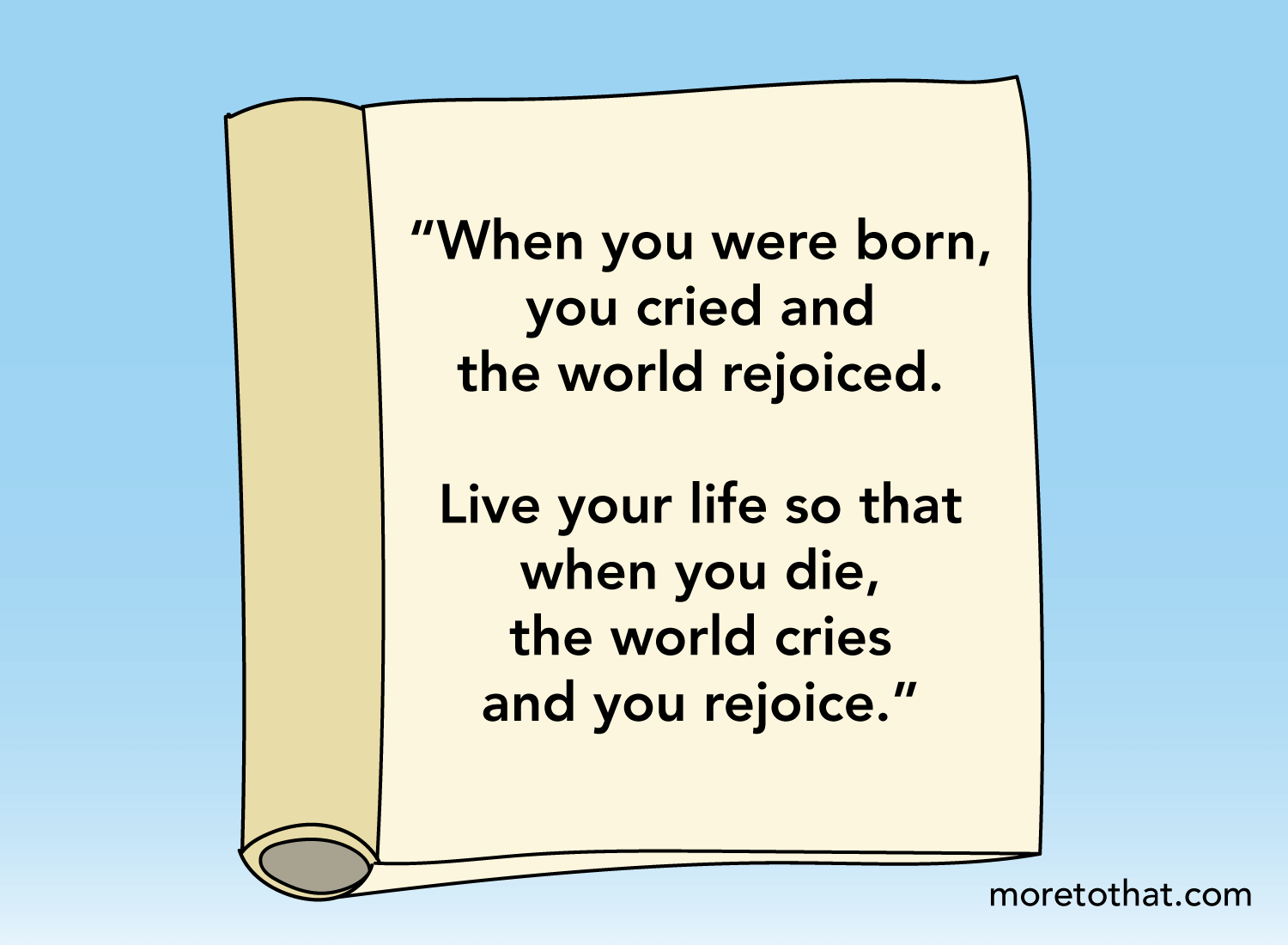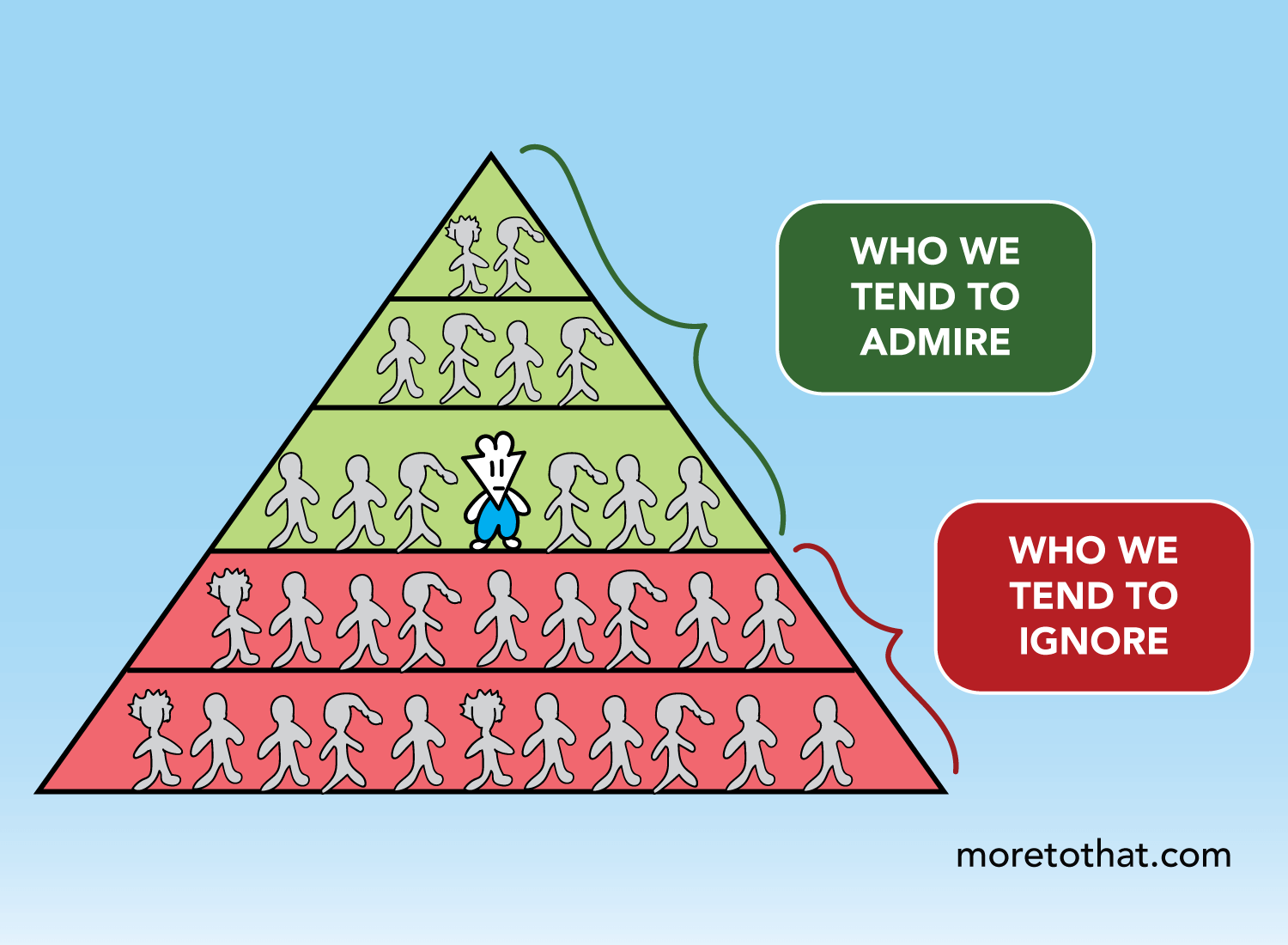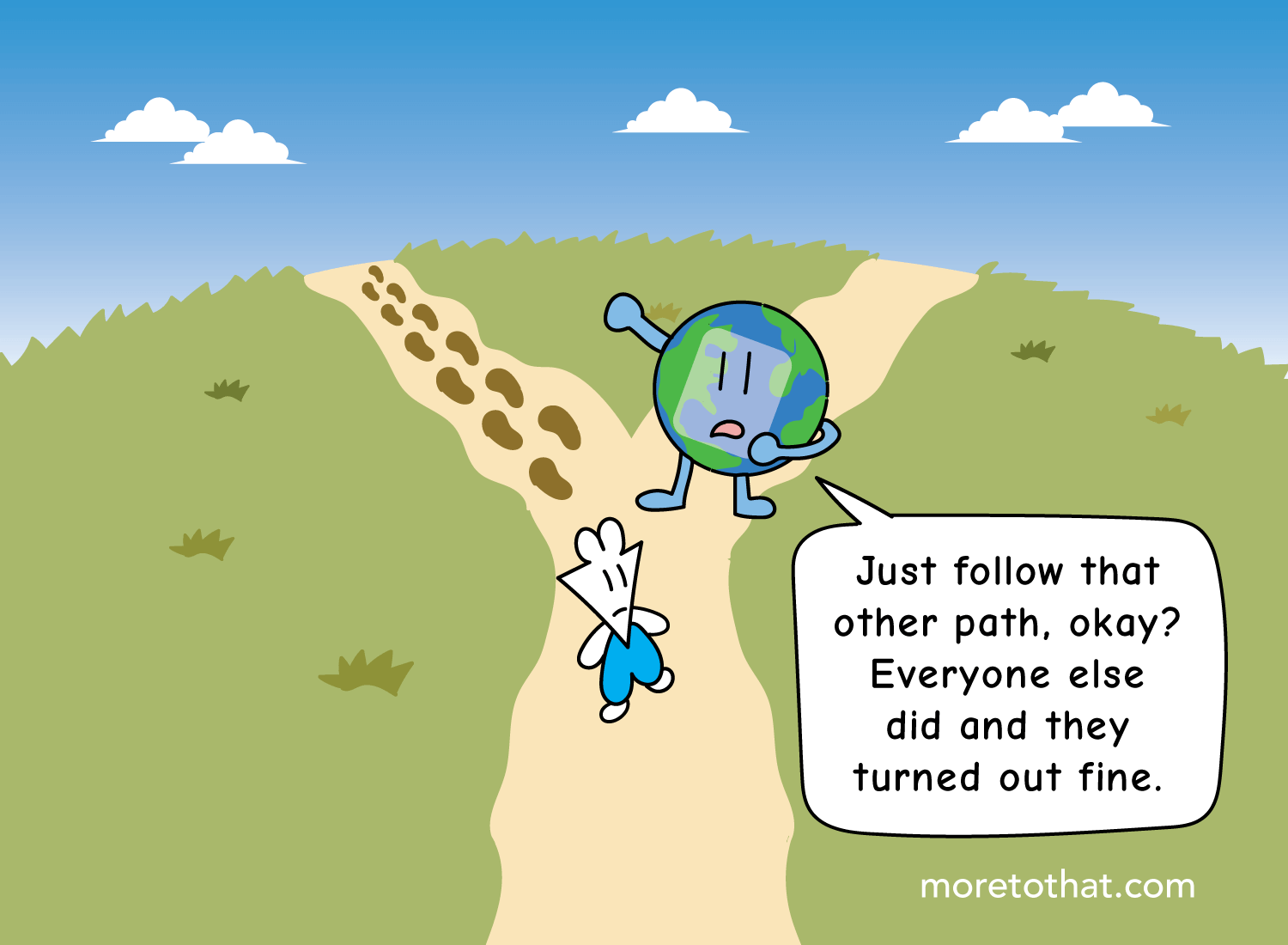Metric-Less Success
In my early twenties, I had this phase where I was enamored with the idea of success. What did it mean to achieve it, and how do people work their way to it?
In an attempt to understand this phenomenon, I subscribed to a magazine that I hoped would unlock something for me. The name of the magazine was, quite shockingly:
Well, it only took an issue or two to figure out how the editors of Success Magazine defined that word. In short, it was all about quantifiable wealth. Each profile would start off with some headline on how much the individual was worth, or the sales price of their most recent exit. A large number in the opening sentence seemed to be a pre-requisite for inclusion, as any verbiage that came afterward would be contingent upon the validation of that number.
At first, I didn’t see anything odd about this. After all, as a recent college graduate, I was used to seeing the world through the tradeoff of promising opportunities with paltry salaries. There was an understanding that I’d be trading my youth for experience, which I would hopefully convert to wealth in a decade or two. So seeing the big numbers associated with these older individuals made me want to pay attention in an attempt to accelerate my timeline to success.
But in one of the magazine’s profiles, I came across a quote that made me re-think this all.
The profile was on an entrepreneur and author who sold a large number of books. While much of the piece orbited around his wealth creation principles, there was a small part where he discussed his thoughts on living a meaningful life. And in it, he recounted something his father always told him growing up, which has remained in my mind ever since:
When I first heard this quote, I was taken in by its eloquence. But as I let it sink in further, I realized that it was highlighting a paradox about success.
When you want to gain respect through success, then yes, it’s usually done through quantifiable variables. We respect people that have made a certain amount of money, built a sizable audience, or have won a number of awards. These are common entry points that make us want to learn more about the person at hand, which was why I was reading this person’s profile to begin with.
But when you want to gain love through success, it cannot be achieved through anything quantifiable. The people that will be crying when you depart the world are not doing so because of any number that is tied to your name. They are doing so because you were a loving partner, a caring friend, or a shepherd of kindness. You are dearly missed not because of what you’ve earned, but because of what you represented.
This highlights the distinction between traditional success and metric-less success. Traditional success will get you on magazine covers, but metric-less success will get you on family albums. While society as a whole worships quantifiable success, what will ultimately matter most to the individual is everything that can’t be counted.
Here are some examples of metric-less success that are often overlooked, but impact our lives more than anything:
Marrying the right person
No decision will have more consequence in your life than whether you marry, and to whom you marry. There’s an enormous difference between living by yourself, and committing to living with a partner for the rest of your life. (And it’s not just your living situation either; it’s an intertwining of everything. As Kevin Kelly says, “You don’t marry a person, you marry a family.”) Nothing I say here can adequately describe how different those two scenarios are.
With that said, if you do decide to get married, then one of the greatest success stories of your life will result from it being the right person. If you marry well, then everything is better. You’ll have a person who loves and supports you through your triumphs and challenges, and you’ll learn how to do that for them as well. You’ll have a continuous reinforcement of your values, knowing that the person you’re with also shares them too.
Happiness is amplified through this shared understanding of what’s important, whereas sorrow is alleviated through your partner’s presence during the hardest of times.
This kind of relationship can’t be derived through calculations on a spreadsheet; it can only be defined as metric-less success.
Maintaining a healthy body
The anthropologist Ernest Becker once wrote that we are “gods with anuses.” What he meant was that human beings are equipped with godlike minds that can compose beautiful music, build towering skyscrapers, and send rockets into space. But at the same time, this mind is housed within a body that’s been inherited from our monkey ancestors. It is a body that excretes, secretes, and inevitably decays. We are all constrained by our biological lineage, as even the most brilliant minds will be rendered non-functional in a container that can no longer operate.
This means that everything we value flows downstream from our physical health. Money is desirable only if you have the vitality to pursue it. A career is meaningful only if you have the energy to keep it going. Even time with family can be vibrant only if you’re free from pain.
Our desires are often directed outward because that’s where we’re most aware of what we lack. But all those desires will be leveled to zero if what you lack is access to your physical faculties. So by retaining a strong baseline of health, you are placing yourself in a position where any pursuit is achievable.
A body that exercises regularly, sleeps adequately, and eats well is one that allows its mind to retain its godlike properties. The feeling that emerges from this clarity is one that can’t be derived through digits on a spreadsheet; it can only be defined as metric-less success.
Being compassionate to others
Jiddu Krishnamurti was once asked how his teachings could be implemented in everyday life. Since many of his ideas dealt with denying social conditioning, people often wondered how they could practice these ideas while being an ordinary member of the world.
To that, Krishnamurti replied:
It is no measure of good health to be adjusted to a profoundly sick society.
We often justify the ills of society by encasing them in norms and codes of conduct. And one of the greatest ills we’ve adjusted ourselves to is the way we treat people based on what they can offer, and not for the human beings they are.
We often use status as a proxy for who to treat nicely, and who to disregard. This is because we’ve been conditioned to play the game of ascension in the great social hierarchy, and to gauge people by their position within it. Some use wealth as the benchmark, others use job titles, and some may even use follower counts. The unifying theme across all these, of course, is that they are all tied to an external label or number.
While this pursuit may yield money and accolades, the problem is that you will then begin to define yourself by the status differences you share with others. Your identity will be on shaky ground because the world will seem like a zero-sum game, where a peer’s success will yield envy and a peer’s failure will yield glee. Multiply this dynamic by billions of interactions, and you’ll understand why society can indeed be so sick.
True success is when you can opt out of this game altogether and treat people with compassion, no matter who they are. The person that has no promotion to offer will receive the same level of presence as the person that does, and this equality of attention can extend out to the greater world. The immediate effect is that you’ll see how unconditional your interactions can be, but the long-term effect – which is even more profound – is that you’ll learn how to accept yourself without condition as well.
This texture of love you’ll feel for the world cannot be derived from a chart on a dashboard; it can only be defined as metric-less success.
Living in alignment with your values
Your values are as unique as your genes because no one shares the exact set of experiences and insights that were required to form them. They are the fingerprints of your being, and they are the invisible forces that guide everything you touch.
The problem, however, is that the world is an efficient place that seeks to standardize everything. It will point to a predefined set of ideas as the approach to follow, and will reward those who reshape their values to fit that mold. This is most evident in the realm of careers, where people are encouraged to learn a predictable set of skills to enter a preset path to success. Anyone that doesn’t follow this path is disregarded, so people often dismiss their curiosities in an attempt to fit in.
Integrity is the ability to navigate the outer world without discounting your inner values. In the context of work, it’s to be able to make a living without sacrificing your interests and ethics. In the context of family, it’s to be able to listen to your loved ones without outsourcing your agency. In the context of community, it’s to be able to form lasting friendships without relying upon flattery. In each case, there is an anchor of authenticity that you’re unwilling to budge, no matter how fervently people want you to.
Aligning yourself in this way is difficult, but such is the case for the most meaningful endeavors in life. Difficulty requires ingenuity, and ingenuity is what makes you feel like you’re working toward your potential. The thing about potential, however, is that it’s invisible and can’t be photographed on a magazine cover. But having integrity is about trusting that it’s there, even if you’re the only one that can see it.
The meaning that exudes from this alignment cannot be derived from any number next to your name; it can only be defined as metric-less success.
_______________
_______________
Related Posts
Envy is the greatest enemy of metric-less success. Here’s how to deny it:
Once you shift your frame of success, you’ll feel empowered to take big leaps in life:
The Day You Decided to Take the Leap
For a deeper dive into the difference between respect and love, here’s a long post on it:









